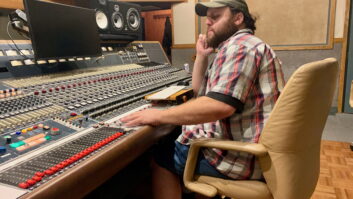LILONGWE, Malawi — One of the latest privately-owned radio stations to hit the Malawi’s airwaves, Lilongwe-based Dziko FM, is leaving no stone unturned to find recognition in the country’s competitive radio industry.

With its “people-centered approach,” more than 100 radio listener clubs have thus far been formed for the station in nearly all districts of central Malawi. The groups form around people in a community who listen to a certain radio station of their choice for a particular reason. The station is also well-known for promoting local music.
STRAIGHT TO TOP
“There is no magic potion for our success,” said station Founder and Chairman Chikumbutso Mtumodzi, “we just prioritize people’s interests in all our programming. People want good content, people want to listen to nice music and people want to feel connected to what they hear on the radio — so this is what we are doing.”
Mtumodzi said the radio largely targets rural communities to help them develop and sustain their cultural values. “For instance we air programs that promote culture, such as Nyau, a traditional dance of the country’s largest ethnic group, Chewa. We play music for different traditional dances. The goal is to encourage and give them a chance to appreciate their culture,” he said.
According to Mtumodzi, the rationale of broadcasting via satellite is to awaken and use modern changes and advances in information technology.
“We are moving with the changing times. Satellite reception is clear and we want to give our audience the best sound quality in addition to good programming,” he said.

Pamela Mithi (right) works with fellow journalists in the
newsroom. Photo by Lameck Masina
The station boasts 22 full-time staff members most of them work in shifts. It also has interns.
Radio programs that have contributed to the station’s popularity include “Kadzutsa” (“Breakfast”), “Umoyo wa Mayi” (“Woman’s Health”), “Mchikumbe pa Ntibu (“A Farmer on Radio”) and the most popular phone-in program, “Kwachitikanji,” (“What’s Happening”).
ADVERSITY
In June, however, the popularity of Kwachitikanji nearly landed the station into trouble when the Malawi Communications Regulatory Authority (MACRA) summoned Mtumodzi over the contents of the program, which MACRA officials claimed breached the broadcasting tenets of “fair play.” MACRA said that during the program, the station was letting callers use hate speech and warned Mtumodzi to suspend the phone-in program.
Because of this, some of the advertisers threatened to withdraw their sponsorship of the radio programs if the station continued to host opposition politicians and other government critics who they said talk ill of the government.
“I took that as a disgusting and sad development,” said Mtumodzi.“We report on anything that concerns the life of a Malawian. We are not here to please anyone; we are not here to nurse people’s political egos. We represent the common person.” None of the threats materialized, thanks to fruitful discussions the radio had with MACRA and with its sponsors.
MACRA has long been asking broadcasters airing live phone-in programs to install profanity delay systems in their studios that would help broadcasters control the broadcast of hate speech and foul language. Only a few of the country’s stations make use of the technology however, mainly due to financial constraints.

The station’s producer, Thom Ali, puts together a program
in the production studio. Photo by Lameck Masina
News and current affairs is another area that has helped the station increase its audience. The newsroom airs three main news bulletins per day in both the local language, Chichewa, and English. News briefs and updates are aired every hour.
“We strive to air balanced news that is important to our audience and without compromise,” said Pamela Mithi, head of the news and current affairs department.
Good sound quality has also helped Dziko FM attract listeners. The station’s engineer, Norwin Mwamadi, says the station owes this to the gear they have installed. The station’s on-air studio is fitted with an Allen & Heath ZED-12FX 12-channel sound console, Behringer HPX2000 headphones and C-3 Behringer condenser mics. It also makes use of a Fostex PH-5 headphone amplifier, Fostex PM0.4 active studio monitors and a Barix Extreamer 500 IP audio encoder/decoder. The production studio is fitted with a Peavey mixer and Behringer headphones.
“The equipment has worked to our advantage,” commented Mwamadi. “I am told that many listeners tune into our broadcasts not only for its content but also because of the quality sound. When we started, we were only heard around [the capital] of Lilongwe. Now we are planning on expanding our coverage so that we can reach the entire southern region and southern regions of the country,” he added.







